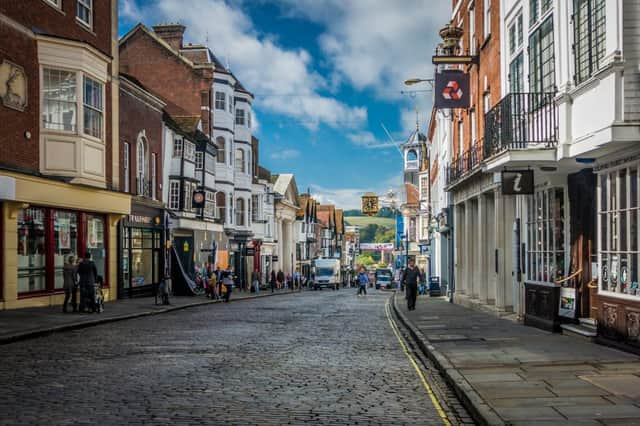Here’s what counts as a non-essential shop - and if hairdressers are included


Boris Johnson announced in his daily coronavirus briefing on Monday (25 May) that non-essential shops would be able to reopen from 15 June in England as the country begins to ease lockdown restrictions.
Non essential shops temporarily closed due to lockdown on 23 March, and many retailers have suffered as a result, with clothes shops like Warehouse and Oasis going out of business.
Advertisement
Hide AdAdvertisement
Hide AdBut what counts as a non-essential shop, and which ones will be reopening? Here’s what you need to know.
Which shops will be reopening in June?
Outdoor markets and car showrooms will be able to reopen from 1 June, with all other non-essential retailers allowed to reopen in England from 15 June.
The Prime Minister said: “From 15 June, we intend to allow all other non-essential retail – ranging from department stores to small independent shops – to reopen.
“Again, this change will be contingent upon progress against the five tests and will only be permitted for those retail premises which are Covid-secure.”
Advertisement
Hide AdAdvertisement
Hide AdNon-essential retailers include shops selling clothes, toys, furniture, shoes, books, electronics, alongside tailors, auction houses, photography studios, and indoor markets.
However, hairdressers and nail salons are non included in this and are not expected to open until July at the earliest.
Although it was originally thought that hairdressers could be among the first businesses to reopen, Foreign Secretary Dominic Raab revealed that they will not open in England until at least July.
Mr Raab confirmed hairdressers in England would have to wait until phase three, which would be from 4 July at the "very earliest", to be reconsidered for reopening.
Advertisement
Hide AdAdvertisement
Hide AdMr Raab told Sky News' Kay Burley @ Breakfast show: "From 4 July, at the earliest, we'll look at other sectors and that will include hospitality, but it will also include personal care and people like hairdressers.”
How has the lockdown impacted retail?
The temporary closure of clothes stores during lockdown has had a significant impact on businesses, with clothing outlets Oasis and Warehouse closing permanently, resulting in the loss of 1,800 jobs.
Debenhams also entered into administration for the second time in a year in April, forcing some of its branches to stay shut permanently.
However, Boris Johnson said reopening shops is "contingent on progress in the fight against coronavirus", and that retailers will have to adhere to new guidelines in order to protect shoppers and workers.
What social distancing measures will be put in place?
Advertisement
Hide AdAdvertisement
Hide AdNew guidance has been published for the retail sector, which includes the measures that they should take in order to meet hygiene and social distancing standards.
This includes frequently cleaning objects and surfaces that are touched regularly, including trolleys, coffee machines and self-checkouts, and placing protective coverings on large items touched by the public such as beds or sofas.
However, plans to reopen non-essential shops in June apply to England only. There’s currently no updates for Scotland, Wales or Northern Ireland in regards to this.
Which shops remained open during lockdown?
Stores which were classed as ‘essential’ and have remained open during lockdown, include:Off-licencesSupermarketsPharmaciesPetrol stationsBanksStorage and distribution facilitiesPost officesHome and hardware storesGaragesVehicle rental servicesVets and pet shopsLaundrettes and dry cleanersMarket stallsMarket stalls which provide essential items such as food are allowed to stay open.NewsagentsBicycle shopsShopping centres (if they have retail units which offer essential services, such as food or medicine, or shops on this list)